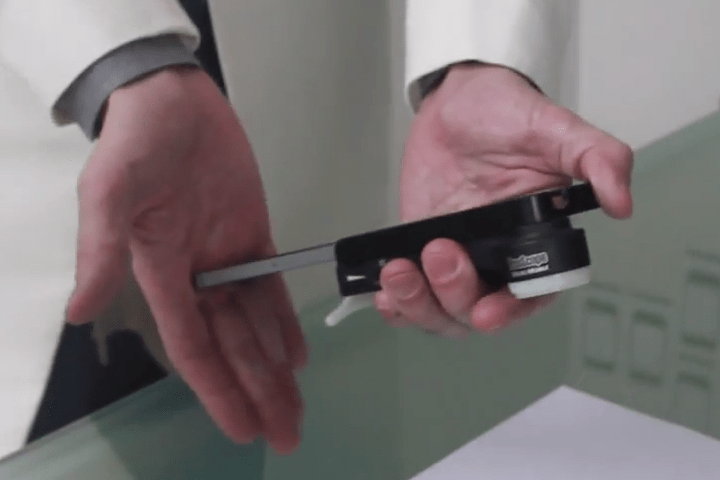
It’s the work of IanXen Rapid, a small company based in London and Jakarta, Indonesia. The idea is to speed up and simplify the diagnosis of malaria, a disease which can be recovered from if it’s caught in its early stages. The current methods of diagnosis are expensive, time consuming, require expertise to use, and aren’t always accurate.
IanXen Rapid’s solution is to use an iPhone slotted into a case with a microscope attachment. An app, developed by the company, will then be used to identify any malaria parasites in the patients blood. The process takes just five seconds, and the subsequent diagnostic work less than three minutes. No network connection is needed, so the kit can be used anywhere in the world. The team says the test method has an accuracy rate of 98 percent, and the overall cost of each test is a massive ten to twenty times less than existing technologies.
The iPhone won’t only put its rear camera to the test either. The front camera will be used to photograph patients, and the images subsequently tagged with the time and GPS location, while the app also integrates ongoing patient logs, report creation, and even automated restocking of any essential equipment to make the tests possible.
To put the malaria fighting iPhone to the test, IanXen Rapid has come up with a very lofty goal. The plan is to go to the Indonesian island of Bangka at the height of malaria season, and spend three months attempting to eradicate two of the most severe strains of malaria from the community completely. All the while putting the iPhone, the app, and the operator through their paces in a hot, humid environment for an extended period of time. It certainly sounds like a thorough test, and should they go well, the IanXen Rapid kit could be commercialized, and used in other malaria ravaged locations around the world.
IanXen Rapid has a £25,000 goal, which covers everything from consumables to travel costs for the study, and the project ends on August 27. Rewards vary from a Twitter mention to the option to buy the diagnostic kit itself. We’re always interested in projects which use mobile tech in a different and beneficial way, and this one seems to fit the bill perfectly. Take a look at the project here.
Editors' Recommendations
- Best refurbished iPhone deals: Get an iPhone 14 for $513
- Best iPhone deals: Save on iPhone 15, iPhone 15 Pro Max and more
- How to find your lost phone (tips for iPhone and Android)
- Why you should buy the iPhone 15 Pro instead of the iPhone 15 Pro Max
- iPhone SE 4: news, rumored price, release date, and more




